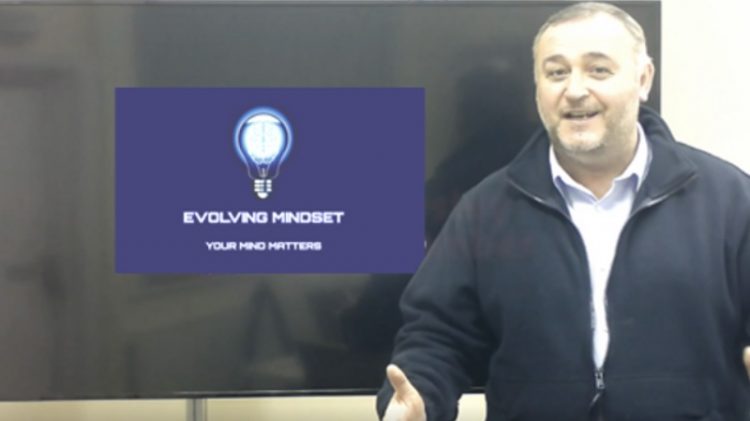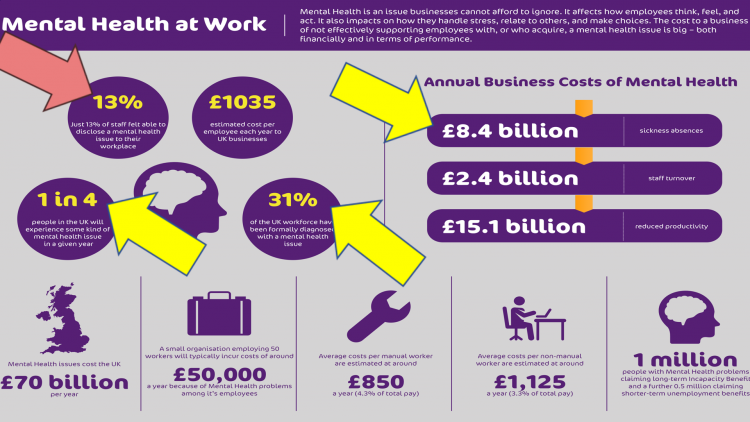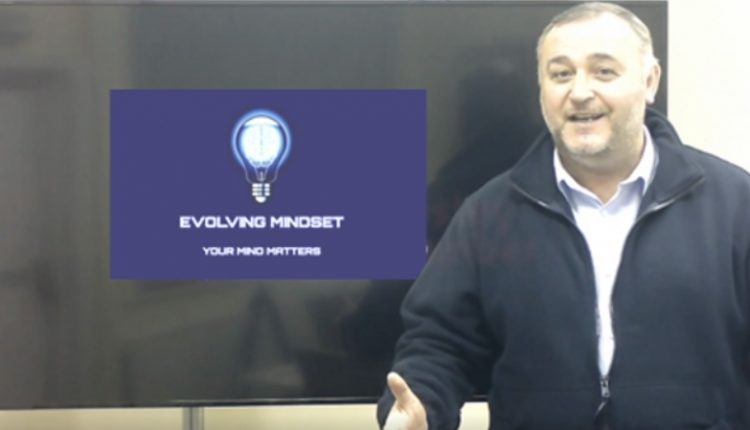Phil rises from rock bottom to offer vital support
Former professional football Phil Noon worked at a senior level in a number of businesses until he was plunged into the ‘darkest period of his life’ – now he is reaching out to help others in despair. Tony McDonough reports

When Phil Noon found himself in the midst of his own mental health crisis, he was luckier than most – his brother Andrew was an experienced mental health nurse.
But it wasn’t until Phil hit rock bottom, that he finally reached out for help. He said: “I had worked in senior leadership roles for many years but it got to a point where I couldn’t cope and my life spiralled out of control.”
With the help of Andrew “pulling me though”, Phil came out of the other side of the darkest period of his life. And that experience has proved transformational for Phil and his brother as they are now reaching out to thousands of other people facing mental health challenges.
In 2019 they launched Evolving Mindset, a non-profit mental health organisation that goes into companies and organisations, schools and the wider community to offer both support and education on mental health. A clear business strategy was developed which included the recruitment of two additional directors Lee Monaghan and Maureen Leatherbarrow
Their goal is to help bring about a genuine culture change. As Phil puts it: “It all comes down to education. When I faced my problems initially I just did not have the information and knowledge I needed. We want to look at different ways to change the culture.”
Phil spent many years in very traditional, very male environments, where admitting you had a mental health problem was unthinkable. Early in his adult life he was a professional football. He played for Exeter City under former Everton FC legend Alan Ball and Macclesfield Town where the manager was ex-Manchester United star Sammy McIlroy.
READ MORE: Wild Thang upskills team on mental health
Following his retirement from football he worked in industrial and warehousing sectors, rising to take on a number of senior and leadership roles. But while on the outside his career seemed to be on the up, on the inside Phil was crumbling.
He told LBN: “At that point the idea that you would ask for help with mental health concerns was non-existent. It was all about ego and bravado. You didn’t ask for help for fear of being seen as weak. You just got on with it.
“But I was not equipped to handle it. The problems just got worse. I was very lucky that in the end I was able to reach out to my brother. It was only after I started to recover that we started doing some research.
“I had gone to my GP for help but I was just prescribed medication. We discovered there was a gap between primary care, such as GPs, and those secondary services such as CBT and other therapies where, even if you get a referral, the waiting list was very long.
“In my case, and in the case of many other people, I needed more help than my GP could offer but was not deemed to have enough of a problem to meet the criteria for those secondary services. That is how Evolving Mindset came to be – we wanted to fill that gap.”
Based in Knowsley, the business provides bespoke courses for employers, works with both teachers and young people in schools, and provides mental health support groups and educational workshops for people in the community.
“All our community help is free to the people taking part in our sessions and workshops,” said Phil. “We are determined to ensure that financial capacity should never be a barrier to asking for help.”
When Evolving Mindset first started trading in 2019 it had three income streams – sales of its products, fundraising and funding bids. They had a clear business plan in place. And then along came COVID-19 and everything changed.
Phil said: “Most of our business just dried up overnight. We had to rely heavily on funding applications and grants. The consequence of this meant that we had to cease with our commercial strategy and focus on our communities offering our free support.
“The Evolving Mindset team for around 18 months, most of the pandemic carried out their roles on a voluntary basis. This was to ensure we met the needs of our communities during a mental health crisis.
“But eventually word spread about the work we were doing and the quality of the delivery. Contracts started to roll in and now we are growing fast. We have been able to bring another three people into the business. We are completely non-profit. Any surplus we make goes straight back into the free community services we provide.”
On the surface, mental health no longer seems to be a taboo and is discussed frequently on social media platforms. But, according to Phil, if you scratch beneath the surface then there is still much work to be done, particularly in the workplace.
“When we started doing our research around early 2018 we found that there was a real problem among the senior people in business who just did not have the awareness, let alone the knowledge or tools, to deal with mental health issues among their teams.
“The figures speak for themselves. The cost to UK business each year in terms of sick days, staff turnover and reduced productivity is around £26bn a year. That is a staggering amount of money. And we can do something about it.
“We also discovered that just 13% of UK employees felt they would be able to raise a mental health concern in their workplaces. And yet, we know that around one in four employees will experience some kind of mental health issue in any given year.
“When I was a leader, I was as ignorant as anyone else. There is a clear lack of understanding among many leaders for whom mental health issues are still largely a taboo subject.
“If someone does raise something then it will end up being dealt with by a line manager. A person going off sick with mental health issues will, on average, need to take around 21 days off work. That will create stress as the rest of the team will have to take on more work. They may have to take on a temp. That will be expensive and productivity will fall.


“Employers are starting to take notice of the issue but too often there is still just a tick box approach. We are making more progress among what you would call white collar employers – professional firms.
“But it is more difficult in the kind of environments I used to work in where they are often more male-dominated – industry, factories, warehousing etc. When we go in, initially they will treat it as a bit of a joke. I always offer my own experiences and, guaranteed, by the end of the day, people will start to come around.
“We often get calls from people after the sessions. They don’t feel ready to talk about it openly to their peers but they are ready to talk to someone. What is absolutely critical to changing the culture of an organisation is buy-in from the top. It has to go really deep. We know that 75% of suicides are among men so this change is so important.”
Phil says the pandemic has had a significant mental health impact across the society – both in the workplace and in the community. “We saw a pattern of depression and anxiety emerge during the pandemic, particularly during the periods of lockdown,” he said.
“There is a fear of the unknown. It could be as simple as someone being anxious about getting back on the bus to return to work.” “We are seeing issues among people who have always regarded themselves prior to the pandemic as being mentally well.
Since its inception, Evolving Mindset has reached almost 1,700 people in workplaces, schools and in the community, and this number is growing by the day. One project that is having a real impact is Knowsley Young Minds.
READ MORE: Counting the mental health cost of COVID
Jointly funded by Livv Housing Group and Evolving Mindset, with support from the National Lottery and Knowsley Council, Knowsley Young Minds takes a holistic approach to helping young people in schools across the borough, Phil said: “That is about identifying issues early on and it also focused on parents and home life offering full wraparound support. We have seen some amazing outcomes.”
Phil is passionate about changing culture at all levels of society. Despite the size of the task he is optimistic that real cultural change is achievable. He explained: “When I was at work a lot of attention was always paid to the Health & Safety at Work Act. But the emphasis was very much on safety. Having the right clothing or boots.
“But not enough attention has been paid to the first part of that – health. The psychological health and wellbeing of people has been ignored for many years. We are aiming to change that. We have to be more proactive rather than just reactive – spotting the signs early so we can reach out and help.
“I am realistic enough to know that it will be more difficult to change culture among people of my generation – although I think it can be done. Through projects such as Knowsley Young Minds we are looking to ensure we don’t repeat the mistakes of the past
“I have been through my own journey and I am determined to educate as many leaders as I can. It is essential, they buy into it if we are to see real change. The promise we make to people is this – we can’t promise to be able to fix your problems, but we promise you won’t have to deal with them on your own.”

